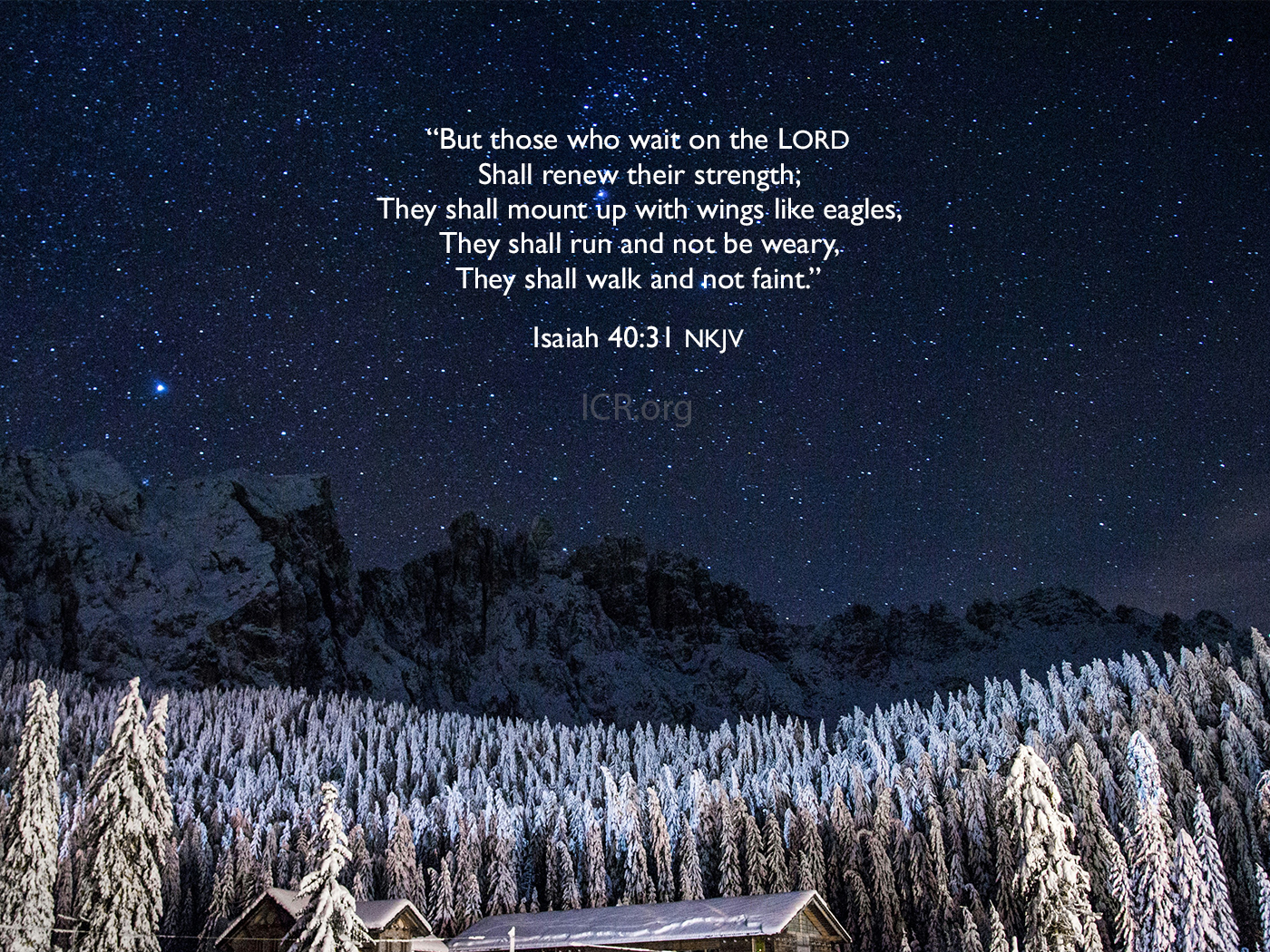This will be the first in a series of very personal "Back to Genesis" articles setting forth the over-all background and future mission of the Institute for Creation Research, as I have envisioned right from the start. Since a key purpose of ICR is to bring the field of education—and then our whole world insofar as possible—back to the foundational truth of special creation and primeval history as revealed first in Genesis and further emphasized throughout the Bible, it seems appropriate to make this theme the subject of several "Back to Genesis" articles. The doctrine of special creation is basic in true Christianity, and I trust that God has raised up ICR to help meet this need.
We expect, Lord willing, to celebrate ICR's 25th anniversary this year (1995-96). God has greatly blessed the ministry during these 25 years, but the world's need in relation to the creation message has hardly been touched, and there is very much yet to do. Since I am nearing retirement, it is important for all the ICR "family" to obtain a clear understanding of where we have been and where we are going, if we are going to meet effectively the tremendous challenges of the days ahead.
It may be helpful if I review first of all a little of my own background. Much of the "ICR Vision," if I can call it that, has probably come out of my own earlier study and experience.
There is still a great need for at least one real Christian educational center, comparable to a large state university, with all the facilities and programs one finds in major state universities. The distinctive difference, however, would be that all these programs should be based on, and framed around, Biblical revelation, especially the foundation of strict creationism.
This "dream" resulted from 35 years (1935-1970) as a Christian student, teacher, and administrator in five different secular universities, all dominated by an evolutionary humanistic philosophy. Even though such a dream may seem unrealistic, it does represent a goal toward which Christians should aim. Unless Christ returns first, the young people in our colleges and universities will probably be the leaders of tomorrow in every field of human activity. There can be no more vital goal than to provide as many of them as possible with a solid Biblical, Christian, creationist education.
I accepted Christ at age ten through reading a Bible my mother had given me. This was during the great depression, but I was able to get into Rice University (which was tuition-free at the time) and then to live at home. Otherwise, I could never have afforded college at all. Although I was a theistic evolutionist at that time, I could see even then that the teachings in science and the humanities were largely atheistic. I graduated in 1939 with a degree in civil engineering and then worked three years for the International Boundary and Water Commission in El Paso, dealing mostly with studies on the hydrology and hydraulics of river flood control.
While in El Paso, my wife and I became members of a good church, and I soon joined the Gideons. Through these I became convinced of the power of God's Word and the importance of winning people to Christ. Then, in 1942, I was asked to return to Rice as an instructor in order to teach engineering to Navy students who were being trained as officers for the war. By then I was spending much time in the Word and soon started teaching a Bible class for the students. I also began reading every book I could find relative to science and the Bible in order to answer the questions the students would raise, especially about evolution and creation.
There was very little sound creationist literature available in those days, so I finally set out to write a small book myself, one that would help win skeptical young people to Christ and His Word. The result was a book called That You Might Believe, first published in 1946.
When the war ended, I enrolled in the graduate program at the University of Minnesota, majoring in hydraulics and minoring in both geology and mathematics. I had come to realize that the Biblical Flood provided the real key to harmonizing the scientific study of earth's history with the Genesis record, and thus was the ultimate answer to evolutionism. The combination of hydraulics and geology seemed the best preparation for effectively dealing with the great Flood in relation to science, and the University of Minnesota had the best combination of facilities and faculty for such study.
In those days, there were no fellowships or government aid to speak of, so I also had to take a full-time instructorship to support the family (by this time we had two children, and three more were born during the five years we were in Minneapolis). The Lord led providentially in many ways during those years, enabling me to get both the M.S. and Ph.D. degrees in record time. I also taught a large Sunday school class of college students, and a campus Bible class for engineering students, seeing many come to faith in Christ, just as we had at Rice.
A new edition of my book was brought out by Moody Press in 1950, under the name The Bible and Modern Science. This book is still in print as Science and the Bible, having gone through five updated revisions during later years. It was evidently the first book ever written by a scientist on a secular university faculty (at least in the 20th century) which presented evidence for recent creation and flood geology.
We also acquired a real concern for foreign missions during those years and were able to witness to many foreign graduate students, with several becoming Christians. We even made temporary plans to go to the closed country of Afghanistan as non-professional missionaries in order to help establish the first engineering school in that Muslim nation, but the door was shut just about the time I got the Ph.D. I think the Lord wanted us to be willing to go to the mission field, but actually He had different plans for us, including reaching other nations with the truth of creation.
Instead, we went to Louisiana where I served six years as Head of the Civil Engineering Department at the University of Southwestern Louisiana. At the same time, I continued doing the library research and study that I had begun at Minnesota on geology and the Biblical Flood, writing several chapters on what I hoped might eventually become a definitive work on Biblical creationism and catastrophism. It was during those years that I met Dr. John Whitcomb at a meeting of the American Scientific Affiliation in Indiana. He had read That You Might Believe as a student at Princeton University and was one of the very few men at that ASA meeting who agreed with a paper I presented there entitled, "Biblical Evidence for Recent Creation and the Worldwide Deluge." That was in 1953.
At that meeting, I learned something very interesting. I had thought that, since these ASA scientists (and some theologians who were there) all professed to believe in the inspiration of Scripture, they would accept literal creationism and the worldwide flood if they could just be shown that this is what the Bible teaches.
I was wrong. In the question period, they raised numerous scientific objections, but not one answer to the Biblical evidence which I had thought (and still do) was absolutely compelling. That experience has been repeated many times since. The reaction to strict creationism by Christian evolutionists and progressive creationists is almost invariably to defer to "science" rather than Scripture. They feel Christians should interpret Scripture to conform to current scientific opinion, rather than interpreting the scientific data in the context of Biblical revelation.
I remember one Christian geologist at that ASA meeting 40 years ago saying that we must stretch the Scriptures just as far as we possibly can before allowing ourselves to disagree with "science."
I thought then, and still do, that such an attitude in anyone who professes to be a Christian is dishonoring to God's Word and to the Lord Jesus Christ, who Himself believed in "recent creation and the worldwide deluge." But that's the way it is with much of evangelicalism today.
Next month, in Part II of this series, I plan (Lord willing) to give a brief review of the fascinating history of modern creationism. It has grown to very significant proportions here in 1995, and one of its most significant stages was surely the decision in 1970 to form the Institute for Creation Research. God has indeed established ICR for such a time as this.
* Dr. Henry M. Morris (1918-2006) was Founder and President Emeritus of ICR.













